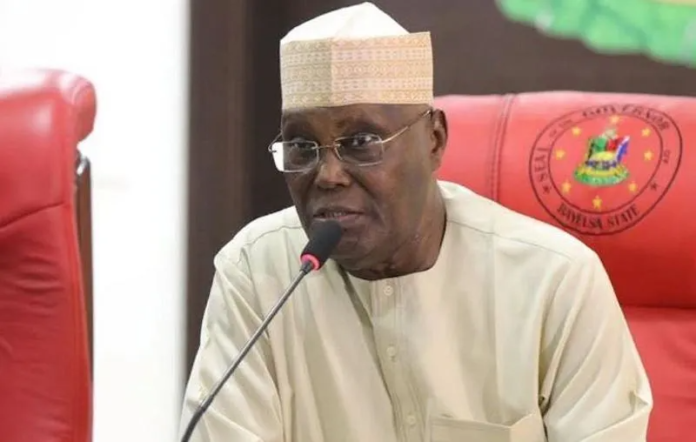Atiku Abubakar, the presidential candidate for the Peoples Democratic Party in the 2023 election, has expressed strong concerns regarding the proposed 2025 budget, asserting that it lacks the necessary structural and fiscal discipline to tackle Nigeria’s complex economic issues.
In a statement released on Sunday, the former vice president responded to President Bola Ahmed Tinubu’s recent presentation of a N49.7 trillion budget to the National Assembly. This budget is predicated on several economic assumptions, including a revenue target of N36.36 trillion, an inflation rate reduction to 15.75%, an exchange rate of N1,500 per dollar, oil production at 2.06 million barrels per day, a crude oil price of $70 per barrel, and a projected budget deficit of N13.39 trillion.

Atiku criticized the budget for perpetuating a “business-as-usual” approach, arguing that it fails to make a meaningful impact on the lives of ordinary citizens. He raised doubts about its capability to promote sustainable economic growth and effectively address Nigeria’s entrenched challenges.
One of Atiku’s key concerns was the budget’s reliance on N13 trillion in borrowing to cover the deficit. He highlighted several critical issues, such as, Weak Budget Execution,
Heavy Debt Servicing Burden, Excessive Government Spending, Inadequate Capital Investment and Regressive Tax Policies
Atiku concluded that the 2025 budget is deficient in the structural reforms and fiscal discipline necessary to confront Nigeria’s diverse economic challenges.
He urged the administration to prioritize reducing inefficiencies in government operations, combat contract inflation, and focus on long-term fiscal sustainability rather than continuing unsustainable borrowing and recurrent spending habits. A shift towards a more disciplined and growth-oriented fiscal policy is crucial for the country’s economic recovery, he asserted.




